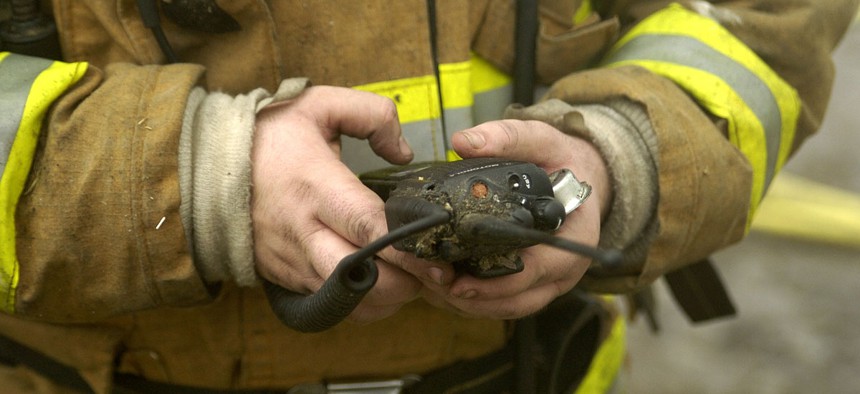Homeland Security Radio Silence Persists

Dale A Stork/Shutterstock.com
After almost three years, the Department of Homeland Security has made little progress toward improving internal communication via radio, according to a recent IG verification review.
More than two years ago, an inspector general audit discovered radio silence between the many components of the Department of Homeland Security. Today, little has changed.
In the aftermath of the Sept. 11 terrorist attacks, the department spent $430 million on radios to facilitate communication between each of its components should a future emergency occur. But by 2012, only a single one of the 479 radio users tested could use a common channel, according to an IG report. And only 78 of their radios had the appropriate program settings to do so.
IG recently checked back in with some of these radio users to see if anything had changed.
Of the 17 radio users tested, seven could communicate through the common channel and eight had no idea the channel existed, according to the verification review. The other two knew the channel existed but couldn't use it.
“Unfortunately, DHS components’ inability to communicate effectively on the DHS common channel persists,” stated the recently published verification review titled, “Corrective Actions Still Needed to Achieve Interoperable Communications.”
The department has drafted a communications interoperability plan and management directives to standardize departmentwide radio activities, the new report stated. But neither has been finalized.
The interoperability plan has been under review for more than one year, according to the report.
When asked for an expected finalization timetable, the agency could not provide one, the report stated.
“We are disappointed to see the lack of progress in this area," Inspector General John Roth stated in a document accompanying the report. “DHS leadership must prioritize effective interoperable communications, a fundamental aspect of the homeland security mission.”
In 2012, DHS did have a radio channel available for the different components of the agency to communicate, but it wasn’t required. IG recommended it create a governing structure responsible for ensuring interoperability throughout the agency. It also recommended DHS put policies in place to standardize its radio activities.
The agency did not concur with the first recommendation, and did concur with the second, according to the 2012 report.
However, one of its goals included in its interoperability plan is to identify and possibly create a “decision-making body with the authority to govern cross-component interoperability-related issues.”
(Image via Dale A Stork/ Shutterstock.com)





